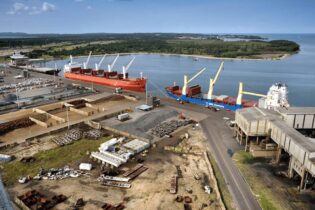Choosing a long term transporter is key to importers who are facing significant pressure as they battle to offset continuous increases in the petrol price. The need to mitigate the impact of higher fuel costs by finding cheaper alternatives can result in businesses taking decisions that have a negative impact in the long term.
Penny Henley Logistics Manager at Blue Strata, says “While sourcing cheaper options may be advisable in some respects, caution should also be exercised by importers. Choosing a transportation company purely on the basis of price could place the company at severe risk. Some companies have been known to significantly undercut on pricing in order to gain new business, with the result that they creep the prices back up over time or cut back on other areas such as maintenance, leaving the vehicles in a poor state and at risk of breaking down, creating delays or stock shortages.” “Companies should instead look for long-term relationships with their transporters to ensure that they can deliver on their promise. “One route that companies can take to minimise the impact is to ensure that transporters accurately adjust for any fuel surcharge, so that any increase is relevant to the corresponding rise in the fuel price.” “Most transporters have a base price with a fluctuating fuel surcharge on top of that, so Blue Strata monitors the costs charged by transporters and any fuel surcharges imposed by them to ensure that the rise is relevant,” she says.Henley explains, “If an importer doesn’t understand how this fluctuating surcharge works and how it can be accounted for, then a transporter could potentially increase it by too high a margin. This isn’t a core part of a business, so often importers don’t monitor these conditions and aren’t able to work out an accurate calculation on the surcharge.”
“The latest petrol price increase will have to be absorbed by importers, as they often account for and cost their goods six months previously, ultimately these cost increases will end up being passed on to the consumer down the line.” “Obviously this is only sustainable for as long as consumers are willing and able to buy the product at a higher price. If importers inflate their prices by too high a margin then the end result is that consumers may look elsewhere, so any increases have to be managed effectively.” “Should the petrol price not stabilise in the longer term,alternative methods of transport such as rail may start to prove a viable consideration for importers. The problem currently is that rail services simply aren’t reliable enough to ensure delivery on a specified date. Inefficiencies and a lack of maintenance in the rail system need to be addressed if businesses are going to look at rail as an alternative mode of transport.” “That said, the differentiator between road and rail is starting to narrow considerably, as the fuel price continues to escalate and it is becoming harder to justify the differential in price between the two. As a result, we may begin to see some businesses prepared to accept delays in turn for a cheaper delivery cost.”




